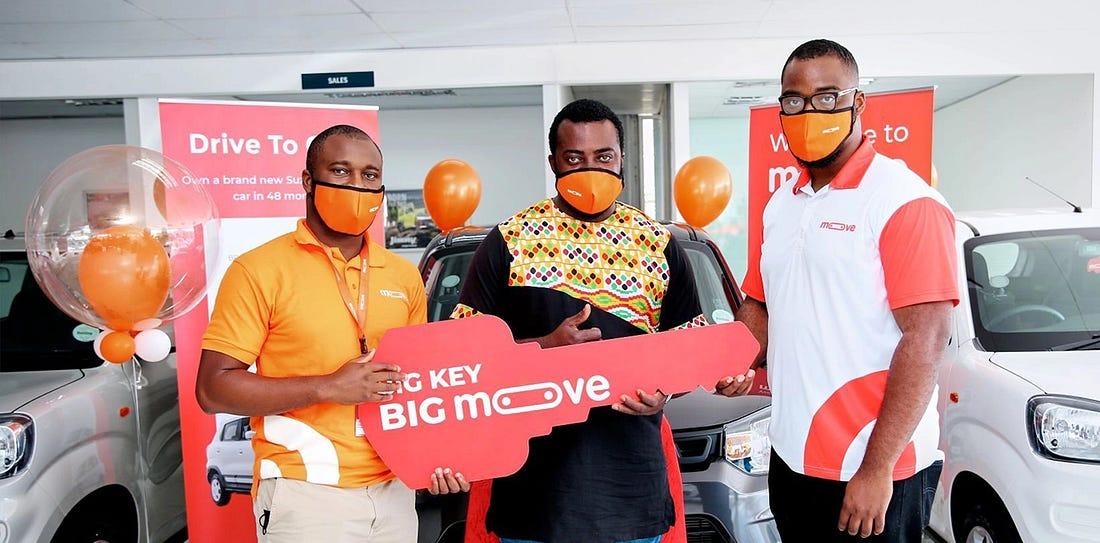African tech ventures, especially fintechs and asset financing companies, are seeking a foothold outside the continent, including to Mexico and Latin America. On the other hand, an increasing number of Latin American tech ventures are also setting up shop in Africa.
On January 29, 2025, Nigerian remittance fintech LemFi announced the acquisition of Irish currency exchange platform Buttercrane in a strategic move to expand its services across Europe.
The deal, approved by the Central Bank of Ireland, grants LemFi an Irish license, allowing it to operate in the European Economic Area (EEA). This is not LemFi’s first foray into the European market. In 2021, the company secured a UK license by acquiring RightCard, a dynamic London-based fintech founded in 2014.
LemFi also partnered with Dutch firm Modulr Finance to begin operations in Europe while waiting for the Irish regulatory approval. With this new license, LemFi can now expand seamlessly across Europe, using a system called “passporting,” which enables financial institutions to operate in other EEA member states beyond their primary licensing country.
LemFi is one of the poster children of a new generation of cross-continental African tech ventures founded by entrepreneurs who dream about global reach and domination. When it was founded in 2020 by Ridwan Olalere and Rian Cochran, its ambitions included expanding across emerging economies in Africa, Asia, Europe and Latin America. Outside Africa, the fintech now has operations in Mexico, Brazil, China, India, and Pakistan.
Flutterwave is the another example whose global reach has seen a notable increase, with 48% of businesses using its platform receiving payments from new geographic locations—a 12% rise from 2023. Founded in 2016 by Iyinoluwa Aboyeji, Olugbenga Agboola, and Adeleke Adekoya with headquarters in the U.S. and to some extent Nigeria, the platform now supports more than 150 currencies and has multiple money transfer licenses.
In addition to its Send App being available in 49 states in the United States, the company also has operations in Canada, Rwanda, Ghana, Uganda, Zambia, Kenya, and Mozambique, bringing its total presence to over 35 countries.
To the new kids on the block, conquering Africa is not enough. They defy old stereotypes and see themselves in the same class of global entrepreneurs who have built the Ubers, AirBnBs, Facebooks, Glovos, etc of this world.
The Allure of Mexico City and Latin America
In 2023, Ugandan fintech Asaak entered Mexico by acquiring a subsidiary of FlexClub, which provides mobility financing and car loans to drivers. Founded in 2016, Asaak offers motorcycle and smartphone loans to Ugandans individually and through partners like SafeBoda. After becoming profitable on the back of its program that purchased motorcycles for boda boda (motorcycle taxi) drivers in Uganda, Asaak began to consider options for expansion.
Three years before, Nigeria’s foremost fintech Paga, a mobile money service provider, had acquired its Ethiopian partner, Apposit, to enter the Ethiopian market and expanded its services to Mexico. That represented an expansion into the rest of Africa and Latin America simultaneously. These moves came a little over a year after Paga raised a US$10 million Series B round.
Nigerian mobility fintech, Moove, another poster child of this new expansion, acquired Brazilian car rental startup Kovi, marking a major step in its expansion into Latin America. This strategic all-share acquisition strengthens Moove’s global presence as it continues to scale its vehicle financing and fleet management services. The completion of the Kovi takeover is subject to approval from Brazil’s antitrust authority.
Kovi will continue operating under its existing brand name, and its executive and management teams will remain unchanged. Also founded in 2020 during COVID by two cross-continental founders, Ladi Delano and Jide Odunsi, Moove has positioned itself as a key player in the global mobility marketplace by providing vehicle financing solutions for ride-hailing platforms through its Drive-to-Own product, as well as taxi and autonomous vehicle services.

Moove founders with the founder of Kovi
In February 2021, South Africa’s digital bank, TymeBank, entered the Philippines market via a partnership with the Gokongwei Group/JG Summit Holdings. This was after it announced its US$110 million Series B capital raise for expansion across ASEAN, starting with the Philippines.
Latin America Comes to Africa
An equally exciting phenomenon is Latin American tech firms expanding into Africa over the last five years. When dLocal, a fintech from Uruguay announced its expansion to Ghana, Kenya, Cameroon and Senegal in 2020, Adebiyi Aromolaran, Head of Expansion described Africa as “a tremendous untapped e-commerce opportunity,” with “huge potential for growth and an under 40% penetration rate.”
When Brazil’s EBANX announced its African entry last September, CEO and co-founder, João Del Valle pointed out that the decision was supported by the fact that “Africa’s fast-growing digital economy is only in its early days, and it’s projected to grow up and to the right for the next few decades.”
In June, Colombian fintech Minka launched operations in East and Southern Africa. PayRetailers expanded to Kenya and seven other markets in September, bringing its presence on the continent to 12 countries. Cross-border payments platform Conduit also expanded into the continent after it secured US$6.5 million from Helios and appointed a Kenyan to head its Africa unit.
Emeka Ajene of Afridigest Intelligence describes this phenomenon of African tech ventures expanding into the global south as an “Emerging market to Emerging market” expansion (E2E). Emeka argues that the old expansion model of going into other African markets is giving way to this new model of expanding into the global south and, to some extent, the rest of the world.
There are many drivers for this expansion into and out of the continent. To an increasing number of founders both in Africa and Latin America, there are core similarities in demographics and opportunities in financial inclusion and economic growth.
The Future is Global
“Our expansion into Africa is a testament to our continued mission to build more efficient payments infrastructure across the Global South,” Minka’s CEO Domagoj Rozic said when the company announced its Africa expansion.
“Low levels of financial inclusion, a heavy reliance on cash, and non-interoperable legacy payment systems are just a few of the issues our team in Latin America have successfully overcome and we believe it is our duty to continue creating solutions that benefit society,” he added.
Companies such as Lemfi and Flutterwave are banking on diaspora communities who want to send money back home. The expansion into Mexico and Latin America has been driven by this, as migrants in Europe, Asia, and other continents look for affordable and convenient platforms.
Mobility companies such as Moove and Asaak are also banking on similarities between their home markets and other emerging economies, and the business opportunities embedded in them. Moove’s Kovi acquisition brought its annual revenue to US$275 million, for example, and the company is now present on six continents.
Moove has also been expanding into the U.S. through a recently announced partnership with Waymo, Google’s autonomous vehicle subsidiary.
The new cross continental E2E expansion model will provide opportunities to savvy founders from Africa and elsewhere to expand their global footprint and reach new consumers across the globe.




